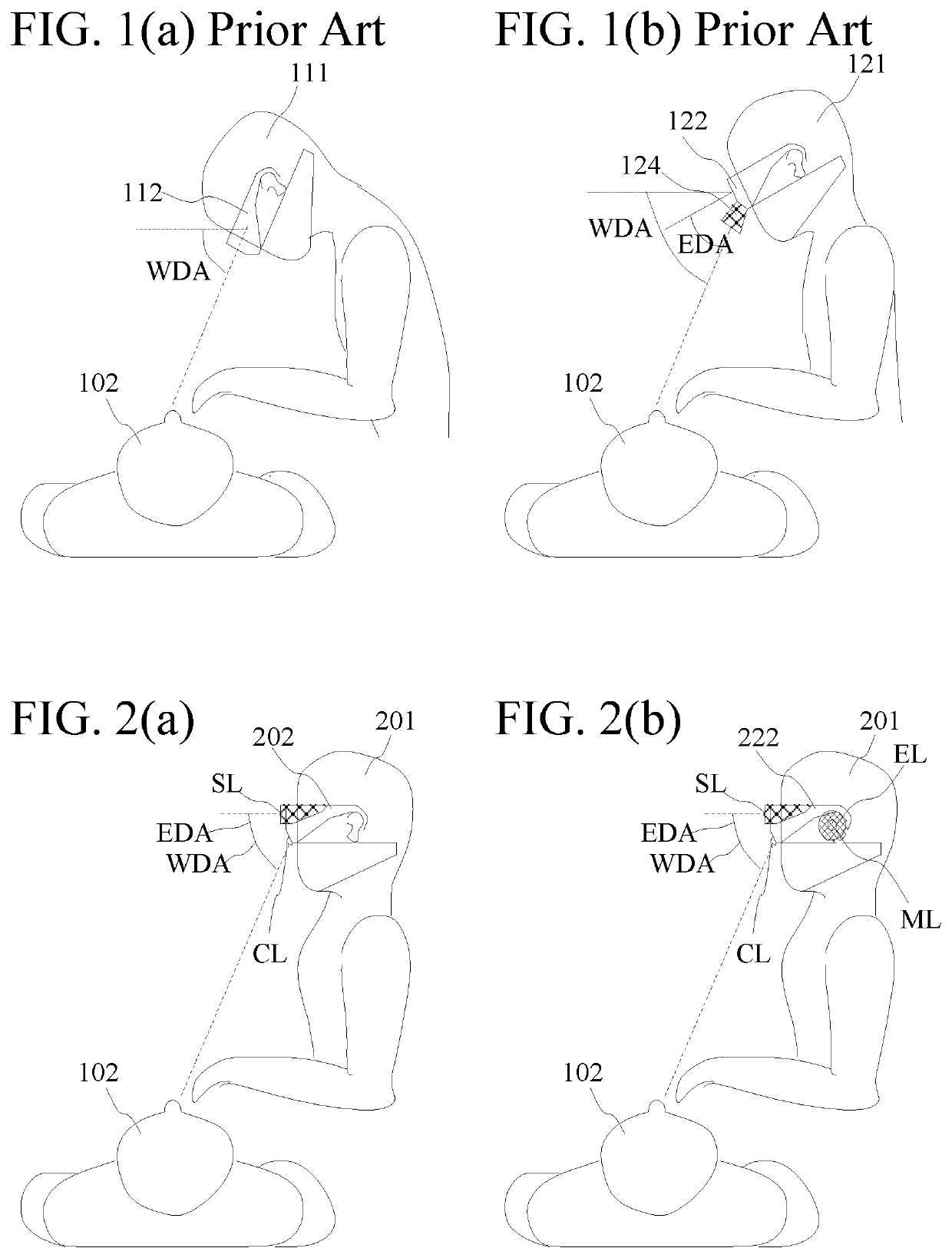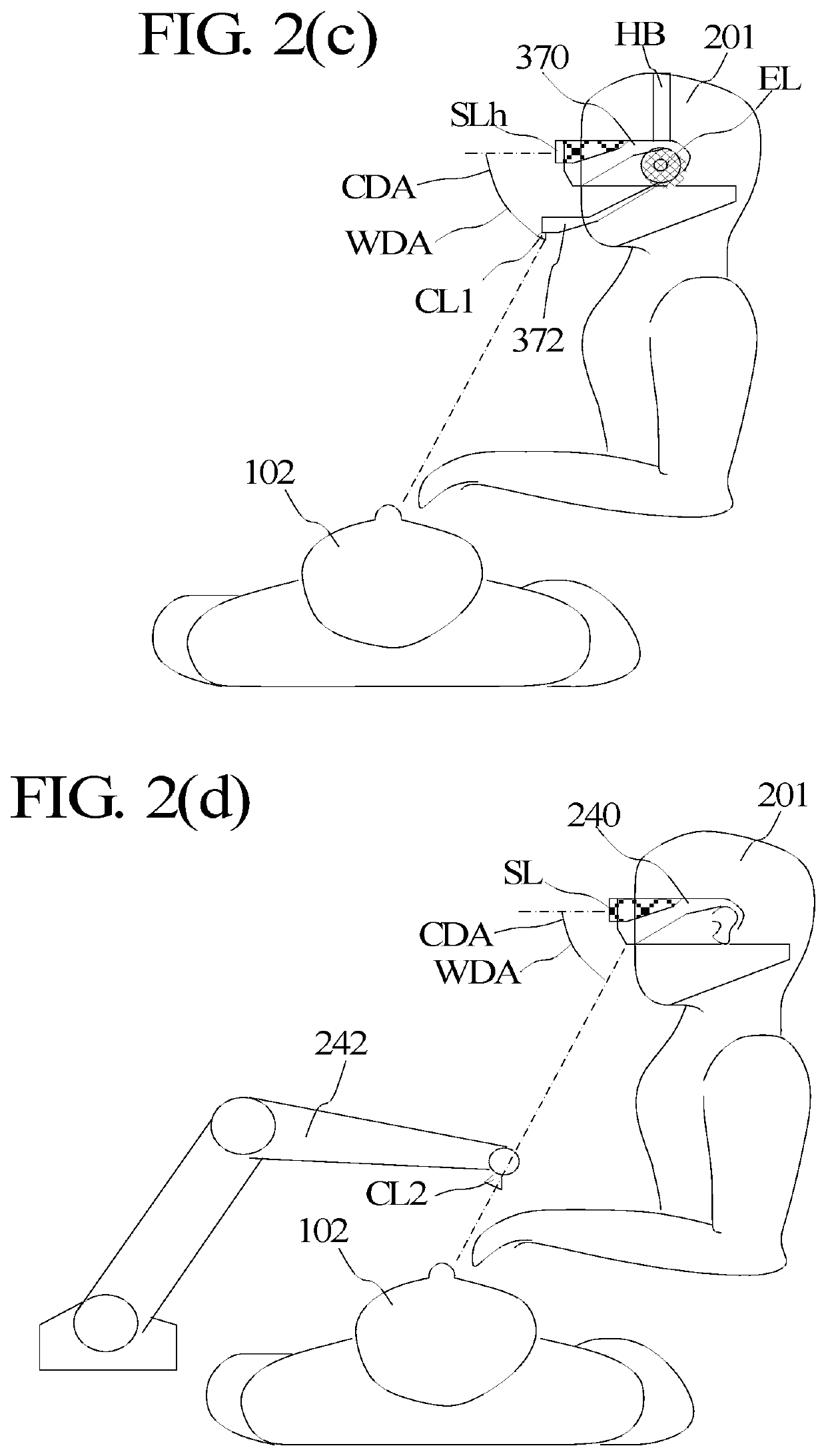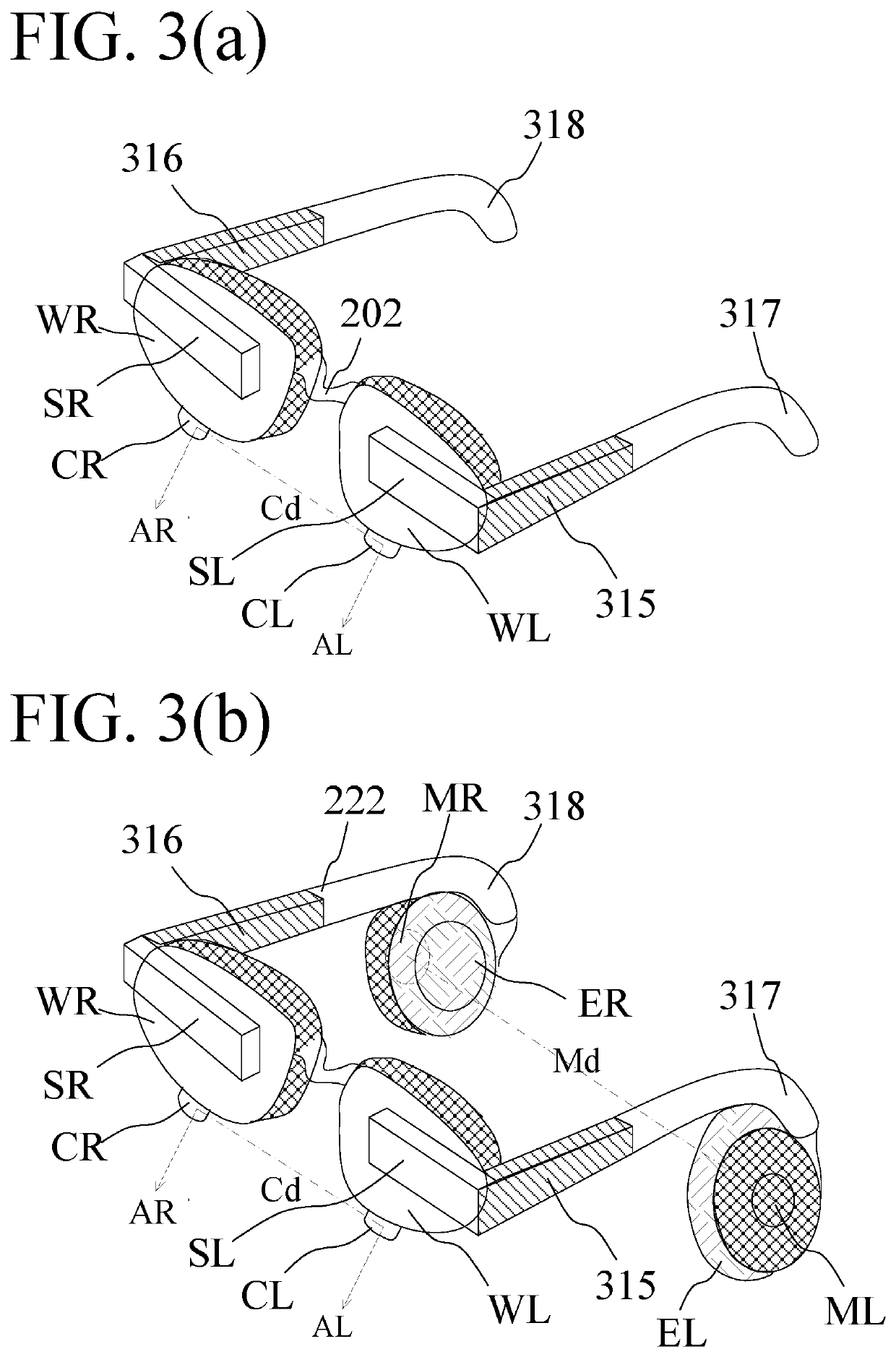Ergonomic protective eyewear
a protective eyewear and ergonomic technology, applied in the field of protective eyewear, can solve the problems of affecting the health of professionals, holding this uncomfortable and unhealthy posture, and affecting the quality of operations,
- Summary
- Abstract
- Description
- Claims
- Application Information
AI Technical Summary
Benefits of technology
Problems solved by technology
Method used
Image
Examples
Embodiment Construction
[0013]A primary objective of the preferred embodiments is, therefore, to provide eyewear that allow users to view working areas below the horizontal plane while maintaining ideal, healthy sitting or standing posture. Another primary objective is to provide eyewear that allow users to view three-dimensional video images of working areas with accurate and natural depth perception. Another primary objective is to provide eyewear that allow professionals to work from their trained working positions. Other objectives are to provide functions including eye protection, zoom-in, zoom-out, on-off, lighting control, overlapping, and teleconference capabilities using electronic, video and audio devices attached to the eyewear. These and other objectives can be achieved by attaching one or more cameras to the eyewear, along with video display devices, audio devices, lighting, and other supporting components as illustrated in the following paragraphs. Another objective is to provide active noise...
PUM
 Login to View More
Login to View More Abstract
Description
Claims
Application Information
 Login to View More
Login to View More - R&D
- Intellectual Property
- Life Sciences
- Materials
- Tech Scout
- Unparalleled Data Quality
- Higher Quality Content
- 60% Fewer Hallucinations
Browse by: Latest US Patents, China's latest patents, Technical Efficacy Thesaurus, Application Domain, Technology Topic, Popular Technical Reports.
© 2025 PatSnap. All rights reserved.Legal|Privacy policy|Modern Slavery Act Transparency Statement|Sitemap|About US| Contact US: help@patsnap.com



